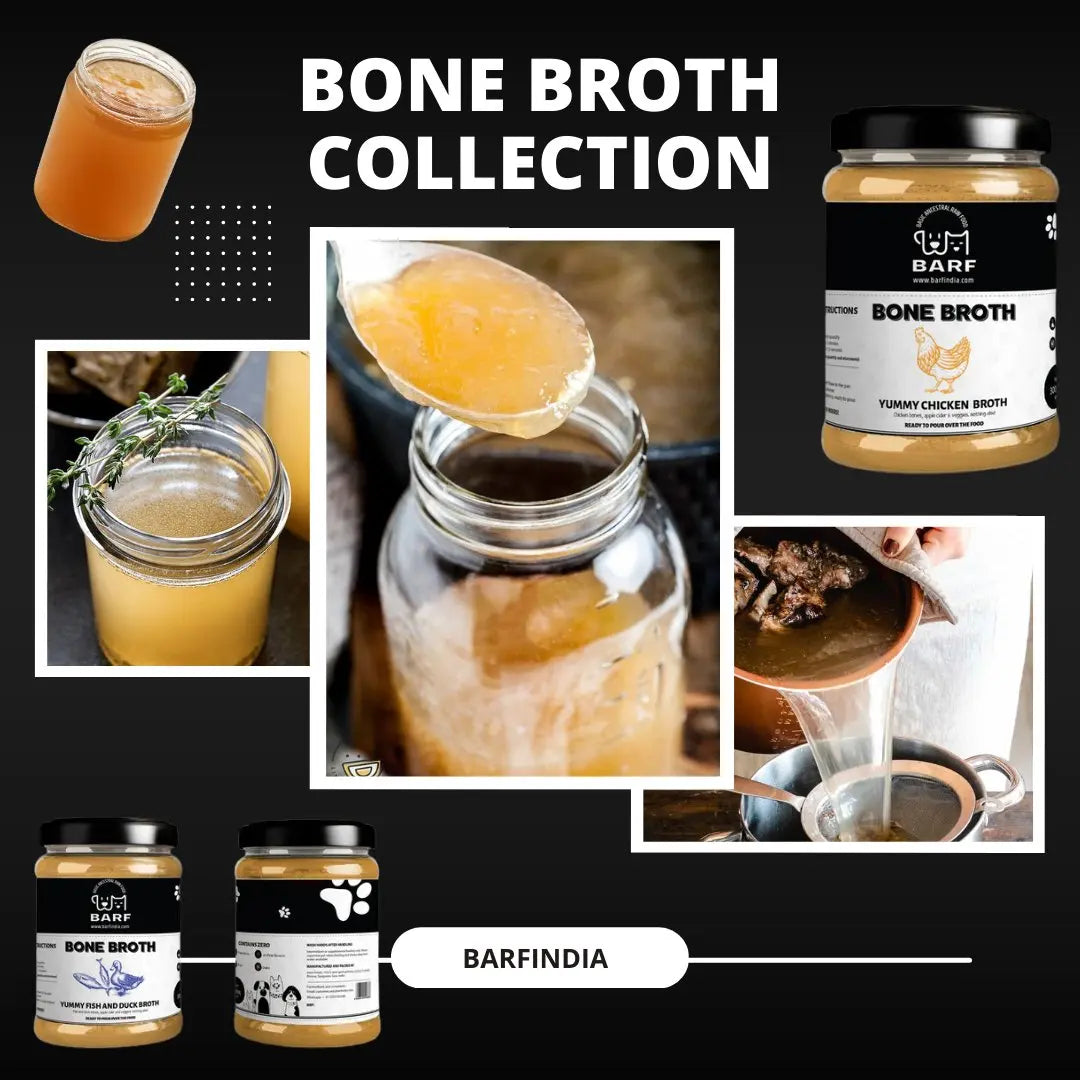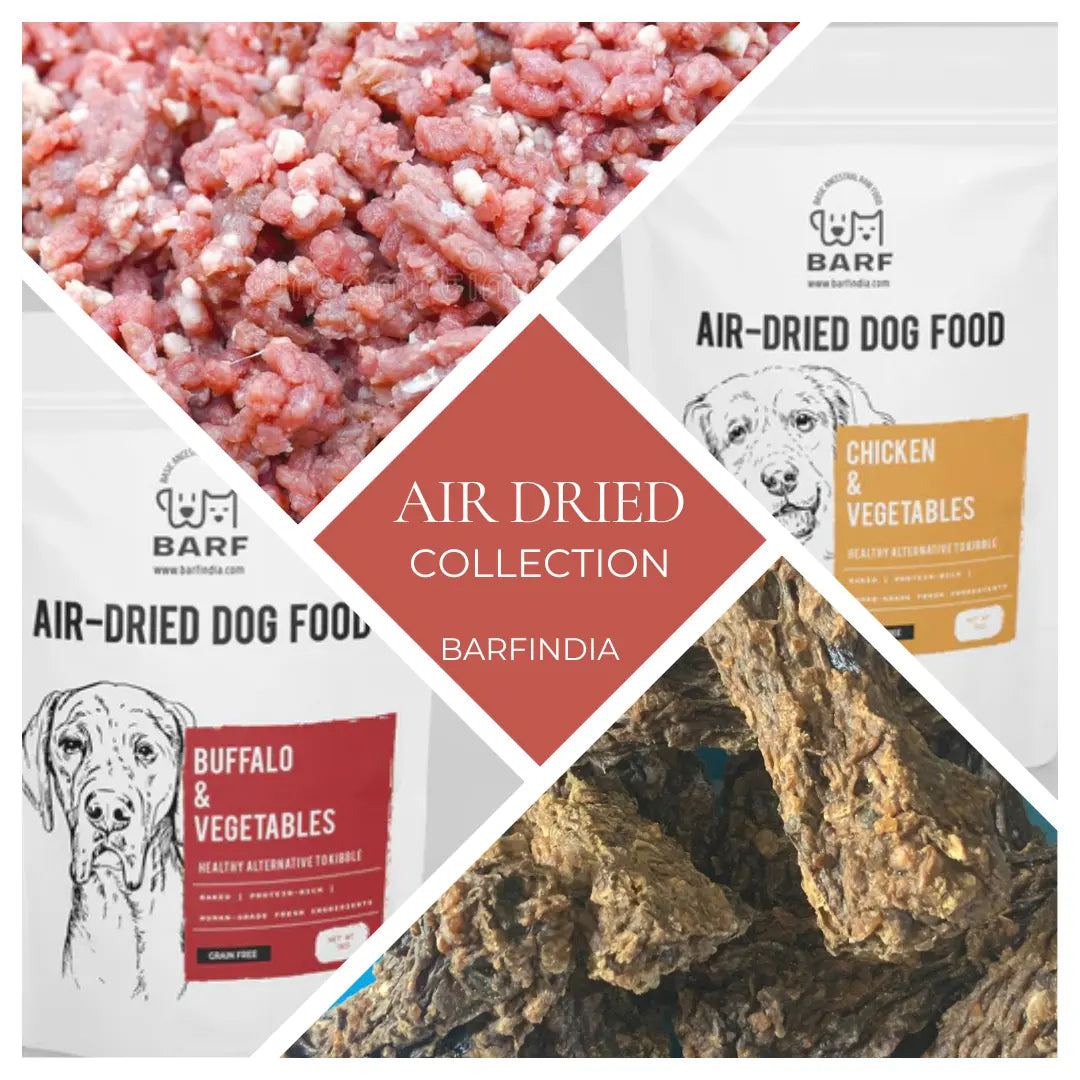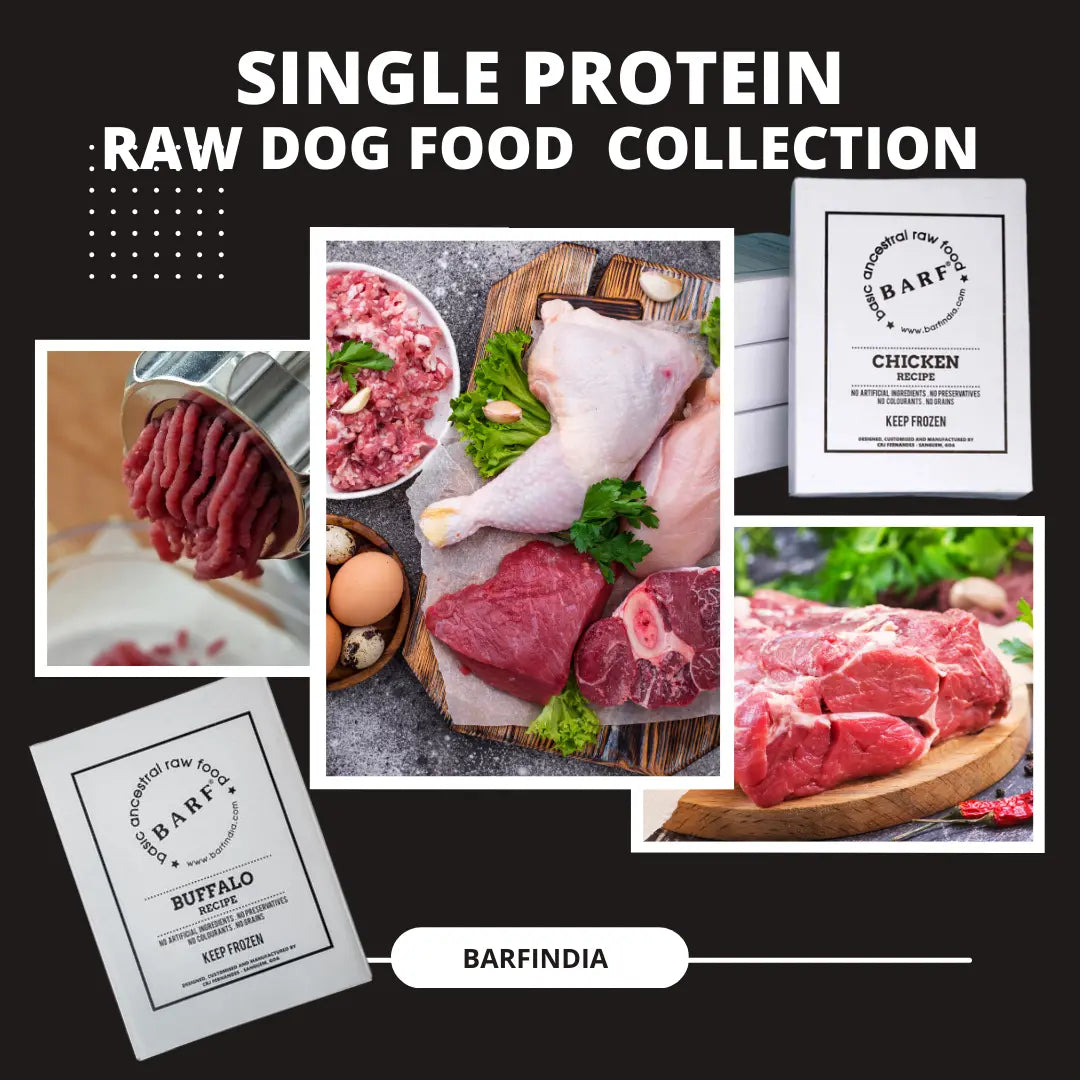
What Are Common Health Problems in Rottweilers?
Nivedita FernandesWhat Are Common Health Problems in Rottweilers? How a Species-Appropriate Diet Can Help
Rottweilers are a powerful and loyal breed, known for their strength, intelligence, and unwavering companionship. However, they are also predisposed to certain health challenges due to genetics and environmental factors. Understanding these common health problems and addressing them with a species-appropriate diet can enhance their quality of life and longevity.
In this blog, we will discuss the most common health issues faced by Rottweilers and how feeding them a raw or cooked species-appropriate diet, whether commercially prepared or homemade, can help manage and prevent these issues.
Common Health Problems in Rottweilers
1. Hip and Elbow Dysplasia
Hip and elbow dysplasia are prevalent in Rottweilers due to their genetic predisposition and large, muscular frame. These conditions occur when the joints fail to fit properly into the sockets, leading to pain, arthritis, and reduced mobility.
- How Nutrition Helps: A diet rich in natural sources of omega-3 fatty acids, glucosamine, and chondroitin supports joint health. Meaty bones, organ meats, and fatty fish provide these essential nutrients, reducing inflammation and promoting joint lubrication.
2. Obesity
Rottweilers have hearty appetites and a tendency to gain weight if not properly exercised and fed. Obesity can worsen other health problems, including joint issues, diabetes, and cardiovascular disease.
- How Nutrition Helps: Feeding a diet high in quality protein and low in unnecessary carbohydrates helps maintain a healthy weight. Including lean meats, low-glycemic vegetables, and portion control ensures your dog stays fit and active.
3. Cancer
Rottweilers are prone to cancers like osteosarcoma (bone cancer) and lymphoma. While some cancers have genetic causes, diet and lifestyle play a crucial role in prevention and management.
- How Nutrition Helps: Antioxidant-rich foods like blueberries and turmeric can combat oxidative stress, which contributes to cancer development. Avoiding artificial preservatives and chemicals in processed food further reduces the risk of exposure to harmful toxins.
4. Gastric Dilatation-Volvulus (Bloat)
Bloat is a serious and potentially life-threatening condition that occurs when the stomach fills with gas and twists, cutting off blood flow. This condition is common in deep-chested breeds like Rottweilers.
- How Nutrition Helps: Feeding smaller, more frequent meals and avoiding strenuous activity immediately after eating can help reduce the risk of bloat. Diets that encourage slower chewing, such as raw meaty bones or home-cooked meals with fibrous vegetables, are particularly effective.
5. Heart Disease
Dilated cardiomyopathy (DCM), a condition where the heart becomes enlarged and weak, is common in Rottweilers. Heart health is deeply influenced by proper nutrition.
- How Nutrition Helps: Taurine, an amino acid essential for heart health, is abundant in organ meats like heart and liver. Including these in your Rottweiler’s diet, along with omega-3-rich fish or fish oil, supports cardiovascular function and reduces inflammation.
6. Skin Allergies and Coat Problems
Rottweilers are prone to skin allergies, which can result in itching, redness, and hair loss. These allergies can stem from environmental factors or food sensitivities.
- How Nutrition Helps: A diet free from common allergens like corn, soy, and wheat can alleviate skin issues. Adding foods rich in essential fatty acids, such as fish oil or flaxseed, promotes a healthy, shiny coat. Coconut oil and sardines are also excellent additions to reduce inflammation and irritation.
Why Choose a Species-Appropriate Diet?
A species-appropriate diet mimics what dogs would naturally eat in the wild—protein-rich, minimally processed, and low in carbohydrates. These diets, whether raw or cooked, offer significant benefits:
- Improved Digestion: High-quality protein and natural enzymes aid in efficient digestion.
- Enhanced Coat and Skin Health: Essential fatty acids improve coat texture and reduce skin problems.
- Stronger Immune System: Whole, nutrient-dense foods supply essential vitamins and minerals that support immunity.
- Healthier Weight Management: High protein and low carbohydrate content help maintain a lean body mass.
- Longer Lifespan: A diet free from artificial preservatives and fillers reduces the risk of chronic diseases.
Homemade Cooked Food for Rottweilers
For those who prefer cooking for their dogs, a well-balanced homemade diet can be tailored to meet their specific needs. Here's a simple recipe:
Homemade Cooked Meal Recipe
Ingredients:
- 500g lean ground chicken or turkey
- 1 cup cooked sweet potatoes
- 1/2 cup steamed green beans
- 1/2 cup spinach (lightly cooked)
- 1 tsp fish oil or coconut oil
- 1/2 cup bone broth
Instructions:
- Cook the ground meat thoroughly.
- Mix with the steamed vegetables and bone broth.
- Add fish oil or coconut oil before serving to retain nutritional benefits.
This meal is easy to prepare and provides a balanced combination of protein, fats, and essential vitamins.
Toppers to Enhance Nutrition
Adding toppers to your dog’s diet can boost their health and address specific challenges. Consider these options:
- Bone Broth: Supports joint health and hydration.
- Fish Oil: Improves skin and coat health.
- Turmeric Paste: Reduces inflammation and combats oxidative stress.
- Green-Lipped Mussel Powder: Provides natural anti-inflammatory benefits for joint support.
- Probiotics: Enhances gut health and strengthens immunity.
Conclusion
Rottweilers are a remarkable breed, but their predisposition to certain health challenges calls for proactive care, particularly in their diet. A species-appropriate diet—whether raw or cooked, homemade or commercially prepared—can significantly improve their quality of life and reduce the risk of many common health issues.
By providing your Rottweiler with clean, whole ingredients tailored to their needs, you’re not just feeding them; you’re ensuring they live a longer, healthier life. Whether you choose to prepare meals at home or opt for carefully formulated commercial options, the key is to focus on what nature intended for your loyal companion.



